|
Section
0401 |
|
|
January
2014 (Volume
64 - Issue 1) |
|
Our
objective: To increase awareness,
interest, and involvement in Section activities and |
| 10 - Site Members | 16 - Unemployed Member Dues | |
| 17 - Feedback/Advertising Rates | ||
1.
Next
Event
Date Wednesday, January 22, 2014 Time 6:00 PM Place Measurement
Uncertainty in the Laboratory and on the Shop Floor
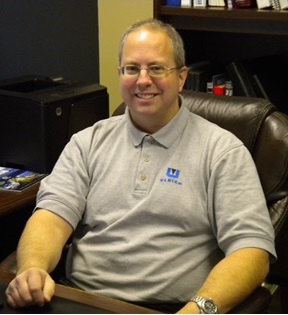 Mr. David Llorens Quality Manager **************************************
Please join us on January 22th to hear our guest speaker present the topic of Measurement Uncertainty in the Laboratory and on the Shop Floor.
Measurement
uncertainty is one of those terms that many people have not heard of,
and those that have are usually unsure of what it means and how it
applies to them. As manufacturers seek to reduce waste and scrapped
parts, to compete on a global basis and to increase profitability,
their processes are starting to be affected by the limits of the
measuring instruments being used. |
2.
Ad
/
Publicité
|
||||||||||||||||||||||||||
|
More and more,
manufacturers need to
be aware of the reliability with which they can accept or reject their
own products, or the components manufactured by subcontractors, and to
understand what is necessary to achieve higher levels of precision.
Understanding measurement uncertainty helps manufacturers identify how to improve their measurement methods, measuring equipment and budget for future improvements. It also helps to identify potential training needs, as well as enhancing communication between various departments. Mr. David Llorens will present an overview of what Measurement Uncertainty is, what the different methods are for calculating it, and will present some examples from the metrology laboratory and on the shop floor that you can apply. BIO David Llorens has been working at Ulrich Metrology for over 20 years. After working for many years as a metrologist calibrating a wide variety of instruments, he progressed through the positions of Laboratory Supervisor, Laboratory Manager, and now Quality Manager. As Quality Manager, David is responsible for the implementation at Ulrich Metrology of the ISO 17025 standard, as well as new equipment acquisitions. David also provides training at customer facilities for such topics as instrument calibration and instrument usage, and performs metrology pre-audits and uncertainty calculations at customer sites. As well as fulfilling the duties of Quality Manager, David still enjoys calibrating instruments, both in Ulrich Metrology’s laboratories and onsite at customer facilities. During his 20+ years since joining Ulrich Metrology, David has followed numerous calibration and metrology science courses, including Measurement Uncertainty, and Lead Auditor for ISO 17025 Laboratories. ******************************************
Cost
ASQ Members ($40) Non-Members ($50) For STUDENT MEMBERS ONLY ($30) NOTE: For students wanting to get to the Sheraton Hotel, you can easily take the STM Express City Bus 747 which will drop you off at the Pierre Elliott Trudeau airport. After which, you may take the Sheraton's free shuttle to get to the hotel. Click HERE for more details. After the meeting, an ASQ member will often be available to drop off a student at a nearby bus or metro station. Bring
your business cards and be ready to
network. To
register for any event or for more information on events please
contact:
Mr. Sukhvinder Jutla Tel: (450) 647-8092 E-mail: Sukhvinder.Jutla@pwc.ca 3. The Editor's Corner
Hello, and welcome to 2014! I hope everyone had a high quality Holiday season :-) I would like to do 2 things in my first Editor's Corner of the year: 1) The first thing is ask a general question to our readership. Relating to our event topic of the month, I would like to ask the following: Does your ISO or AS certified company treat its external calibration sources as approved suppliers, as per Section 7.4.1 of the standard? Click on my Feedback link below and let me know why you do or don't. I will publish your comments here in the February newsletter. 2) If you live in the Ottawa area, the Canadian Public Sector Quality Association will be holding an event on Thursday, February 4, 2014. As per their website: "The Canadian Public Sector Quality Association is an organization established to serve public sector employees at the federal, provincial/territorial and municipal levels. CPSQA has a particular focus on quality and excellence in a healthy workplace environment and seeks to provide knowledge enhancements to those involved in the quality movement." For more information on this event and registering, go to their website or click here to go directly to the event page. *********************************************************
Any feedback? Click on the link in the bottom right corner of this section and let me know. Thanks. |
|||||||||||||||||||||||||||
4.
A Word
from
your Section Chair
Hello everyone. I have been a guest of the medical system for a number of weeks in the last 2 months. A time when you feel threatened and unsure how things are going to work out. How does this very large system get you fed, cleaned, ensure your allergies are respected, the correct medications are administrated. My experience was a good one leaving the hospital well on the way to recovery with one observation, it was the comment of the person standing in front of you that made the difference. Their focus was me and they made sure my needs were met and did not leave until they were satisfied. None of them knew what a quality system was, but my good health is due to the commitment to their tasks within the system, my thanks to all of them. |
|||||||||||||||||||||||||||
5.
Had
You Come
to the
Last Event
By
Khaled Khattab, ASQ Senior Member, Awards Chair
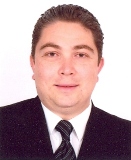 Had you come . . . Business Continuity Management – a General Overview Mr.
Denis Goulet from ContinuityLink (http://continuitylink.com)
gave an
overview about Business Continuity Management (BCM), which is a fast
growing topic of interest among private and public sector
organizations. His presentation included information about the design,
implementation and improvement of a Business Continuity Management
System (BCMS) and covered the following: 1) initiation, 2)
requirements, 3) strategies, 4) response, 5) readiness and 6)
evaluation and improvement. He also showed the evolution of BCMS from
Disaster Recovery Planning in the 70s till today.
He presented
a BCMS
implementation model based on the requirements of the ISO 22301:2012
international standard and showed the linkages between BCMS and Risk
Assessment, as it provides justification for BCM to cover the risks of
business interruption. However Denis clearly described the difference
between BCM and Risk Management/Assessment, as lots of companies mix
between both. Risk assessment recommends controls to reduce the
probability of having to use BCM plans. In addition, BCM is only
interested in risks of business interruption, as it is not the
treatment for all other risks. Not all risks need BCM as the proper
risk reduction strategy; only interruptions of time sensitive
activities need BCM. He also emphasized that there is no return on investment in the implementation of BCMS because it is not an investment. However, like all quality improvement programs, BCMS do require 1) strong commitment from senior management, 2) awareness among all employees about the importance of BCM, 3) priority of BCM with regards to other business activities, 4) review cycle, 5) allocation of BCM responsibilities, 6) project sponsor from senior management, 7) steering committee from all parts involved, 8) project manager and 9) project team. The importance of Business Impact Analysis (BIA) as a process of analyzing activities and the effect that a business disruption might have upon them was thoroughly explained, as it is one of the most critical elements of any BCMS. Denis also explained two important points 1) Recovery Time Objective (RTO), which is the period of time following an incident within which products, services, activities must be resumed and resources must be recovered. 2) Recovery Point Objective (RPO) or “maximum data loss”, which is the point to which information used by an activity must be restored to enable the activity to operate on resumption. He stressed on the types of business impacts to be analyzed to ensure the successful implementation of a BCMS. The types are 1) Productivity, 2) Financial Performance, 3) Loss of Revenues, 4) Reputation, 5) Additional Costs and 6) Others.
Denis gave examples of companies that successfully implemented BCMS and
have BCM practices like Intel and IBM. He also mentioned that
certification against the ISO 22301:2012 standard is gaining momentum
day after day. He also shared information about the BCMIX - Business
Continuity Management Information exchange group on LinkedIn
(http://www.linkedin.com/groups/BCMIX-Business-Continuity-Management-Information-1471/about)
for people who are interested to know more about BCM, Disaster
Recovery, Emergency Preparedness and Crisis Management.
The audience asked questions about the type and nature of disasters where BCM could be beneficial, BCM certification, types of business implementing BCM, how to minimize the potential impact of a crisis, how to test the BCMS and BCMS implementation in SMEs. **************************************************
Khaled Khattab, MQM, ASQ Senior Member, Awards Chair, Principal Consultant at Benchmarking for Excellence. khaledkhattab@yahoo.com. |
|||||||||||||||||||||||||||
6. Voice of the Customer
HAPPY 2014 Sorry for being absent this Fall. Several business trips (China, India, and 3 to Mexico) plus the passing away of both parents (father 31 August and mother 2 October) led to my being somewhat overwhelmed. Fortunately, I work with very compassionate and understanding ASQ Section Leadership colleagues and thank them very much for their understanding and support. I wish you all a very good 2014. In store this year will be: (1) the mail-in member survey which worked out so well last year (better sneak it in before Canada Post makes it too difficult) and (2) a special post-event e-mail survey to determine why our events are not being better attended. The former is still planned for the April/May time frame even if ASQ has now changed their governance year from July-June to Jan-Dec. The latter we will try for the first time in January. The post-event e-mail survey will help us understand a recent decline in event participation, and the annual member survey is to get feedback on our members' satisfaction and continued input for potential event themes. In both cases, we ask that you help us help you by participating. Your ASQ Leadership Team is composed of volunteers doing their best to support your Quality professional needs and, while we too have these needs, we'll only get better at addressing yours if we know what most of you want. Thank you in advance for supporting your section. We hope to see or at least hear from you in 2014. Thank you. 7.
2013-14 Planned Events
Date, time, and location will be confirmed as we progress into the year. Most events are planned for Wednesday evenings and are held at the Sheraton Montreal Airport Hotel. Watch the Newsletter and our web site for further details.
Date Event |
|||||||||||||||||||||||||||
|
To register for any event of for more information on events please contact: Sukhvinder Jutla at (450) 647-8092 or e-mail at Sukhvinder.Jutla@pwc.ca. 8. The
Interview Corner
For our first interview of 2014, we present to you an interview with our Section Chair, Mr. William Wilson. An Example of Successful Quality Management in Practice How to implement best practices of
Quality Engineering in real life -
a success story shared with us by William Wilson. In our everyday lives, we are surrounded by a huge number of machinery and devices that maintain our life and activities, give us warmth, food, water, and supply us with electricity and transportation among many other equally important necessities. We can travel by planes, trains, buses and the metro (subway), nearly always feeling safe. That feeling of safety is not just a fantasy. Although equipment can malfunction at any time, we are quite certain that it was created according to corresponding standards and the required level of quality was achieved. There is only one thing that people normally do not think about or are just unaware of: there was someone who dedicated his or her life to ensure that those required standards were achieved; that all the required maintenance is done in a timely manner; that in case of need there is someone who cares, who sets necessary processes and procedures, achieves certifications, someone monitors the quality status and someone who is constantly searching for improvements. Our interview this month is with our Section Chair William (Bill) Wilson. He is one of those talented quality professionals who make the world around us safer and more stable. Mr. Wilson dedicated his life to Quality; he set a variety of processes and procedures, directed Quality Improvements efforts and implemented System Approach, Audit procedures. He also constantly shares his knowledge; last year he was a speaker at NADCAP (National Aerospace and Defense Contractors Accreditation Program), giving us the opportunity to learn from his firsthand practical experience. 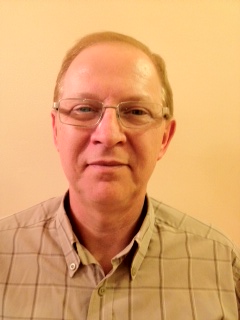 Kostya: Could you please tell our readers about yourself? Bill: I was born in Belfast in Northern Ireland, to an Irish mother and an English father. I came to Canada as an infant. I went back to Ireland as a young child and from Ireland I went to England. I moved back to Canada from England in 1966. I have lived in here since 1966. I finished high school here, and I went to Dawson College. I did my mechanical technology there. I also took several reliability courses at Concordia University, but that really sort of finished my formal schooling. Kostya: What was your first job? Bill: My first job was as an estimator at Dominion Bridge in Lachine, Quebec. I did not start in Quality when I started my working career. It wasn’t a hard job; however, it was a long and tedious job. Filling out sheets of material, taking off and pricing labels, and things like that. My next step was going into the fabrication shops in Dominion Bridge. That is what I enjoyed; being on the shop floor watching the heavy welding and the metal fabrication. That was an evolution for me when I started at the work shop. I worked there for nine years. It was an excellent experience. It was some of the last heavy steel work in Canada. Heavy bridges, etc. has gone to Asia. The heavy steel is gone. We used to build scroll cases for water turbines, built the calandria walls for the nuclear reactors, so I was down in the nuclear workshop for a while, doing work travelers and documentation. The heavy metal steel production was outsourced to Asia. Kostya: How did you come to Quality? Bill: I came to Quality when I was working at another smaller steel company Ralfour. I started working with the QA manager there, performing welding certifications and qualifications. I came up with a few audits. I decided to help my QA manager and that was my first taste of Quality. The second company I went to was a smaller company. They did smaller work such as chambers, and vessels; smaller pressure vessels. That is when I encountered ASME (American Society of Mechanical Engineers ) pressure vessels for the first time. I started fulfilling QA manager duties at that point in time. I was there for about two years. From there, I went to CAE (formerly Canadian Aviation Electronics) . This company builds flight simulators. They implemented big formal Quality Systems. That was my first real adventure into Quality. Kostya: So you started working as a Quality Engineer at that job? Bill: They called it a Quality Coordinator, but it was my first job in a Quality Department. There were maybe fifteen to twenty people in the department. I was young and I was there to learn. I would say that my coworkers provided the materials for me. Many things in the beginning were very practical in its application of going out and verifying product quality. Kostya: Would you say your job was necessary? Bill: Yes. At that point, had something gone wrong or there was a machine problem or a failure with the equipment, a large part of my job was to figure that out. I had to figure out what happened, why did it fail and what was the root cause. Questions like that. Kostya: Have you used this experience in your future career? Bill: That enhanced my technical ability, but it was also where I grew in the Quality System; what it took to do an audit, supplier relationships, those kinds of things. I built that ability and strengthened it. Kostya: When was the first time you understood the necessity of ASQ certification? Bill: I still don’t have any ASQ certification. ASQ is a new experience for me. I have been in it for three to four years. I am chair right now. Kostya: When did you become a Quality Manager? Bill: I left CAE and I went to a company called Securoplex, which is closed now. I went there as a Quality Manager. My department had 5 people. It was not a big company. We focused on fire detection and suppression. I modified, updated the system, added some aspects that were missing. I think I added the structure, benefits, vis-a-vis the Quality System. I was able to look at parts in an engineering sense, evaluate them and literally disposition them from a QA point of view. I spent some time traveling; I was told I wouldn’t but it was the exact opposite. I traveled to England, France, Germany, Norway, and Israel. Kostya: What was the industry area? Bill: The industry area was making sure our suppliers were on track to deal with any technical problems they had. Check the quality of the product, make sure the product met specifications, do any testing/verification. Whatever was required. Kostya: What was the company making? Bill: The European people, we were working on the fire suppression system or the wagons that went in the tunnel between England and France. The system is still in place and it is still functioning. There was actually a fire in the engine. However, the wagons themselves never caught fire; just the engines. Kostya: Our readers will feel better with the fact as to how safety is achieved and why we need Quality jobs so much. So Bill, you are now a Quality Manager? Bill: I have been a QA manager at Securoplex, Shellcast, Astronix and now at Alphacasting. These are different industries with different backgrounds, different technical requirements, and different Quality Requirements. I guess I am fairly flexible. Sometimes it can be difficult to adapt to different technologies. I have been able to take the theory of Quality and turn it into a practical functioning system that meets the company’s needs. Kostya: Do you have any experience you would like to share, as in any where you needed all your knowledge and experience to overcome any challenges? Bill: I have been in many industries. That would be some of the major challenges. I suppose that in some ways, I’ve come to a point now where, being in a company, in many respects I understand all aspects of the company and you don’t think just on one level; you think on many levels such as Quality wise, what is best for the product, and what is good engineering wise. Also, how do you approach it on an Engineering Basis, Production Basis and on a Quality Basis. Therefore, all of the experience has allowed me to think on all those different levels. I understand what the problem is from a number of different aspects, as well as addressing the pure Quality aspect. I think that my problem solving abilities was something that was strong and I was able to see the situation and understand it, and then come up with a number of suggestions. Whatever I came up with was not always perfect or the right answer, however, I was definitely in the discussion and could offer some suggestions and come up with a solution. Kostya: Why did you decide to take the role of Section Chair? Bill: I decided to take this role because I would say it was another challenge and also an opportunity to experience something different. I have been with the section for about four to five years and I felt comfortable enough with the team. They were supportive and they had a lot of experience as well. It wasn’t as if I had to do and think of everything. I think it was sharing the load, as well and helping the section to continue on and it didn’t frighten me. I gave it a try. Kostya: How much time do you spend on the section? Bill: I spend three to five evenings a month or so. I’ve been to one national meeting. I try to come out to the events as often as a can. However, I don't keep track. Kostya: Do you have any plans to change the work of our section or continue the same path that we are currently following? Bill: I think at this point we are following a little bit from the feedback that we get from the members and listening to them. I would say that we tried a few years ago to have a workshop and we maybe have enough resources to look at that format again and see if we can maybe change it slightly. We need to, once in a while, step outside the box and do something different. That is something I would like us to have a look at for the coming year, and see if we can come up with the format and the subject that would be interesting to our members. Kostya: Do you plan to coordinate the job of the section with other ASQ sections or other Quality sections? Bill: I think cooperation between our sections is good. It helps the flow of information and where some sections are not as strong as ours, we can lend a hand. The student section was a great thing. I think the whole executive committee was supportive behind that. Furthermore, I am planning on working in that direction. We are still learning on how to have a student section; the rules are not written for this. We have to learn and adapt. We have to learn what their ambitions are and how much of that we can support. It is good for the section and it is good exposure for ASQ. I don’t think we want to be a University; as in just give out certificates at the end of a certain period. I think ASQ wants to share knowledge and promote that professional aspect of Quality. Kostya: Are we trying to reach out to a variety of Universities and support them to establish quality programs? Bill: They recognize that we potentially have a lot to offer, learning how to cooperate and get the sense of Quality. When I went to school, there were no courses in Quality. I was one of those self-taught guys. There were people that helped and mentored me, and I in return I have done some teaching and mentoring of my own. Kostya: Tell us a little bit about your future plans. Bill: I have maybe four years left until I retire. I suppose I am at this point and time, trying to share what I have accumulated and pass on the benefits of what I have seen and what I understand. I am willing to share and I enjoy sharing my knowledge. I do not want to hide it and run off with it, I want to share it. ********************************************************************* William (Bill) Wilson has been a Quality Manager since 1992 in several different industries. Within those industries, he has experience with manufacturing processes such as: surface finishing, printed circuit boards, welding, machining, qualification testing of ship control systems, qualification of fire suppression systems. All these manufacturing processes and qualification activities are defined and controlled by specifications for the quality and technical aspects. This experience helped prepared him for the world of NADCAP. |
|||||||||||||||||||||||||||
9.
Welcome
to our New Members
NOVEMBER
2013
Majid Bazrafshan Laura Camacaro Carl Dourambeis Eric Fortin Ram Karthik Ganesan Karine Hebert Prashant Hurrynag Siddharth Kalyan Jean-Francois Leblanc Louise Lepage Misse Misse Rehana Nafees Marc Ouimet Ramanpreet Singh Frank Spagnolo Nadine Stumpf Mohammed Taoufik Yenny Paola Torres Roa Audra Welna-Korderas DECEMBER 2013 Sarah Boublenza Carlo Fraticelli Mohsen MH Hidri Anass Mohssine Jessica Moreau Suverin Salomon |
|||||||||||||||||||||||||||
10.
Site
Members
ASQ Montreal Section thanks our Site Members: |
|||||||||||||||||||||||||||
11.
Other
ASQ
Events
|
|||||||||||||||||||||||||||
12. ASQ NewsRisk
Management and Quality A
Hospital Commits to Lean Thinking
|
|||||||||||||||||||||||||||
13.
ASQ
Montreal Section Education Program 2013-2014
By
David
Tozer,
Ph.D., ASQ CQE and SSBB, Education & Audit Chair Having ASQ certification gives you an edge in the market and can significantly increase your income. ASQ Certification often leads to higher paying employment. The money invested in education and certification increases chances of finding employment quickly in the down sizing environment we live in. People who take the section sponsored refresher courses, and spend at least twice as much time as spent in the classroom on self study, have an 80%, or better, chance of passing the examination on the first attempt. Certified Quality Engineer Topics include: quality concepts, cost of quality, human resources, team formation and group dynamics, inspection, metrology, sampling, reliability, quality standards, quality audit, statistics, design of experiments, process improvement, liability, and modern management methods for improving quality. Certified Six Sigma Black Belt Topics include: quality concepts, cost of quality, enterprise wide deployment, business process management, project management, team formation and group dynamics, define, measure, analyze, improve, control, lean enterprise, statistics, design of experiments, and design for six sigma. Certified Six Sigma Green Belt Topics include: quality concepts, cost of quality, enterprise wide deployment, business process management, project management, team formation and group dynamics, define, measure, analyze, improve, control, and statistics. Certified Manager of Quality/Organizational Excellence Topics include: quality concepts, quality planning, customer focus, quality standards, project management, cost of quality, team formation and group dynamics, human resources and improvement.
Certified
Quality Auditor Topics
include: quality concepts,
team
formation and group dynamics, management responsibility, audit
objectives, audit preparation, audit conduct, audit reporting,
sampling, and basic statistics.
Certified Quality Inspector Topics include: quality concepts, team formation and group dynamics, geometry, metrology, reading drawings, mechanical processes, statistical process control, inspection, and sampling. Calendar and Registration Form Questions? In house courses, etc.: David Tozer: (514) 694-2830, davidtozer@qualitiqua.com
|
|||||||||||||||||||||||||||
14.
Executive
Committee Meetings & Officers
Section Executive
Committee
(Leadership Team) Meetings are held at different locations, starting at
6 PM. The next regular meeting is tentatively scheduled for : February
5, 2014 Consult the List of Your Executive
for
2013-14 here |
|||||||||||||||||||||||||||
15. RecertificationIs Your Recertification Due?Look at your wallet card to see when your present certification is due to expire. If it says June 31, 2013 you are in time. Get your journal, with supporting objective evidence (you should know what that is) to me before the end of December 2013. If it says that you were due in December 2012 then you have until the end of June 2013 to submit your journal or it will lapse. Maybe you’ve decided not to recertify because (a) you are unemployed, (b) no longer in the quality field or perhaps, (c ) your employer no longer will pay for it? Think about this, your certification belongs to you and no one else. Your name is on it and no one else’s. It is portable and you can bring the recognition to your next company. Remember how hard you had to study for it? If you let it lapse you must rewrite the exam. Do you know where you will be employed in a year or so? Well congratulations if you do because most of us don’t and it could come in handy then, it sure won’t hinder you to retain it. The cost of $59 USD to renew one certification is much less than it would to rewrite. If you are unemployed, then contact ASQ directly at 1-800-248-1946. Ask for “Recertification” then explain your unemployment situation to them. You may be able to have your due date extended. But at $59.00 that is not really that much if it will help land your next job? If you are a member of Section 0401 Montreal, then contact Norman Dickinson at certification@asqmontreal.qc.ca or at 514-334-6102 to find out where to send your journal. If you are NOT a member of Section 401, then contact ASQ directly at 1-800-248-1946. 16.
Unemployed Member Dues
Unemployed ASQ members receive a discount on their membership dues based on consecutive years of membership.
Eligibility Criteria
Benefits
NOTE: The following links require that you be logged into your account before you try to activate them. Download the ASQ Unemployment Program
Application
PDF (105 KB) |
|||||||||||||||||||||||||||
17.
Feedback
Please send us your comments about the ASQ Montreal Section 0401 E-Newsletter (topics, layout, length, etc.). Do you want to contribute an article (English or French) or a good idea? Contact us by e-mail. |
|
||||||||||||||||||||||||||
Pass
it on
We invite you to forward this Newsletter to friends and colleagues who may be interested. |
|||||||||||||||||||||||||||
|
The
ASQ
Montreal
Section 0401 Newsletter is prepared by and published for its members. How to
Opt Out. This
e-mail
is being sent in the course of normal Montreal Section
business
to the e-mail address of record. We are not responsible for forwarded
e-mails. If you no longer wish to receive e-mail communications from
the Montreal Section (your section) of ASQ, please visit your ASQ
account to unsubscribe or
reply to this message, indicating Opt
Out in the
e-mail body
and in the title. |
|||||||||||||||||||||||||||


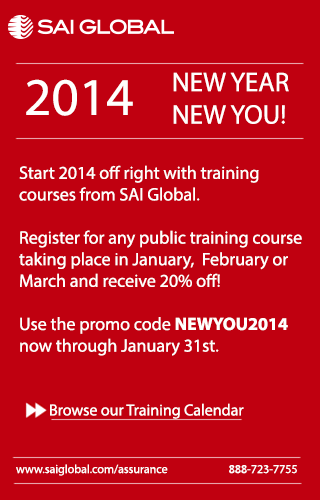
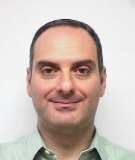
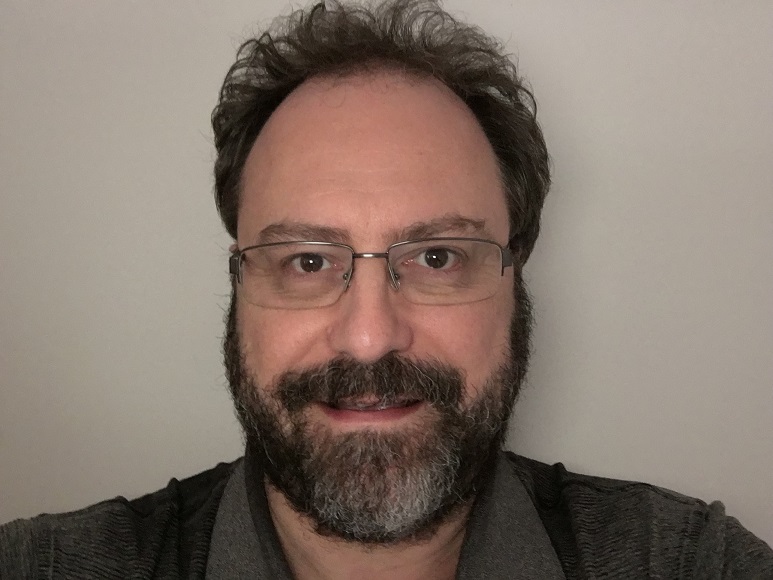
 By
Sukhvinder S. Jutla,
2013-14 Program
Chair
By
Sukhvinder S. Jutla,
2013-14 Program
Chair